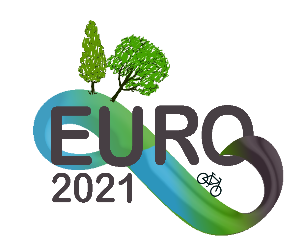| If you like to support this MANIFEST please send an email to Eva Stache e-mail e.stache@tudelft.nl -> than we would be happy to add your name to this Manifest |
|||
 |
 |
||
MANIFEST: A NEW NATURE BASED URBAN BUILDING STANDARD
Nature, and specifically the goods and services it delivers (‘ecosystem services’), can solve most climate-, environmental-, and social welfare related problems in the urban (built) environment. Integration of a high diversity of vegetation that delivers a high variety of ecosystem services must therefore become part of the building process.
International and Dutch studies have shown that climate-related problems such as heat stress, flooding, drought and air pollution problems can be successfully mitigated by vegetation. Moreover, also certain social problems such as unemployment, loneliness, and lack of wellbeing in general can be reduced to a significant extent by integration of nature in the urban space. The social and environmental value of applied ecosystem services exceeds therefore by far the direct economic costs of application. Also, due to natural growth, value of applied greenery increases over time.
Standard implementation of nature in the built environment requires a new urban planning paradigm which embraces the required ecological transition. Therefore a new ‘Nature based urban building standard’ is herewith proposed.
The increased societal value of nature based building is and will be further proven by scientific studies whereby broad public support is achieved through active participation and knowledge sharing. Standard integration of sufficient nature in the urban building process will not only be economically beneficial but foremost contribute to improved health, wellbeing and thus happiness of cities inhabitants.
The proposed New Nature based Urban Building Standard embraces the following statements:
- Nature should be valued for the integral socio-environmental services it provides
The benefits of ecosystem services comprise physical goods and beneficial processes it can deliver, both contributing to wellbeing and happiness. The costs for lack of nature are far higher than investment costs for its implementation.
- Nature and the services it provides form a fundamental and essential part of the cities facilitating functions
The city offers ecosystem services as an essential function to its residents, comparable to facilities such as homes, transport-, water-, energy- and sewage infrastructure, jobs, amusement and leisure. The autonomous adaptability of nature provides specifically climate mitigation and climate adaptive performance.
- Traditional segregation of city functions is replaced by ecological integration of functions
Providing jobs, building materials, food, clean air, water and soil, social interaction, climate mitigation, heat stress reduction and more are all functions that can be integrally provided by implementation of nature in the built environment. Traditional segregation of these functions is an outdated design strategy which will have to make way for a truly integral nature based design strategy. Implementation of nature can provide beneficial services at micro- (building), meso- (street) and macro- (city) level.
- Nature based building practices must become firmly anchored in regulations
In line with the current necessary energy transition, also nature based building practices providing integral solutions to socio-environmental problems currently occurring in cities, and which can be applied at a highly beneficial cost/value ratio, must attain official status ensuring necessary implementation.
Adoption of the new standard leads to the following changes in practice:
- In urban design, integration of green (vegetation) and blue (water) will receive equal importance to red (physical buildings) and gray (infrastructure)
Sufficient implementation of vegetation and water will be included in the list of essential design criteria.
- A coverage of at least 50% of all urban surfaces by green or shade is targeted
Scientific research provides evidence that a 50% coverage of present urban surfaces by combined vegetation and shade is required for effective mitigation of heat stress, flooding and drought in addition to other beneficial services.
- Integral social-, health- and environmental value of applying greenery in the built environment will become part of the standard exploitation calculation
Including the integral societal value of the beneficial goods and processes of ecosystem services for society in the exploitation calculation provides clarity on the profitability of the marginally increased investment requirements of building projects.
This manifest was drafted as part of the EURO2021 conference (‘Ecological and nature inclusive design of the climate resilient city’) (https://www.euro2021.eu), organised by the Delft University of Technology, and presented to its participants as a basis for discussing the necessity and technical and economic feasibility of nature including building strategies in the urban (built) environment.
Herewith we ask you to sign this manifest to show your support and feel for urgency of nature-inclusive building practices. Aim of this manifest is to raise awareness among international decision makers and ultimately to reach implementation of nature based building practices in building codes and regulations.
This manifest is supported by the following individuals:
Dr. Henk M. Jonkers, Associate Professor at Delft University of Technology, the Netherlands
Dr. Marc Ottelé, Assistant Professor at Delft University of Technology, the Netherlands
Eva Stache, MSc Architect and PhD researcher at Delft University of Technology, the Netherlands
Ir. Stef Janssen, Architect, the Netherlands
Francesca Cesa Bianchi, Project Director and Partner, Stefano Boeri Architetti International Projects, Italy
Drs. F.M. Nagel, policy adviser sustainability, the Netherlands
Egbert Roozen, director Royal Dutch Association of Landscapers and Gardeners, the Netherlands
Dr. Martin Hermy, Em. professor natuur- & groenbeheer, KU Leuven, Belgium
Prof. Dr. Arh. Teodor Gheorghiu, Universitatea Politehnica Timisoara, Facultatea de Arhitectura si Urbanism, Romania.
Prof. Dr. Patrick Meire, Gewoon Hoogleraar, ecosysteembeheer en integraal waterbeheer, Universiteit Antwerpen, Belgium
Ron Kervezee, Project manager Greening Center area Alphen aan den Rijn, the Netherlands
Jutta Hinterleitner MSc, Architect, Researcher Area Development, TU Delft Faculty of Architecture, the Netherlands
Ir. Hans de Boer, Architect, DIMI, Tu Delft, the Netherlands
Mark Rotteveel, Project adviser, Koninklijk van Ginkel Groep, the Netherlands
Dr. Thomas Warscheid, Lecturer at the Technical University of Munich in the Department of Architecture, Germany
Dr.ir. H.R. Schipper, docent / onderzoeker MSc-coordinator Civil Engineering track Building Engineering
Heidi van Woudenberg, Duurzaamheidsadviseur/programmamanager, GreenSteps Duurzame Innovatie
Dr. D. van Dorp, Landscape Ecologist and Lecturer/ Researcher at Van Hall Larenstein University of Applied Sciences
Jelle de Jong, Algemeen directeur IVN, Instituut voor natuureducatie en duurzaamheid
Thomas van Nus, MArch Architect and partner CHRITH architecten
Christina Eickmeier, Dipl.-Ing. Architect and partner CHRITH architecten
Ing. Mark Koning, Koning Architect BNA
Pieter Aaldring, Stadsvogeladviseur Delft en omstreken, Vogelbescherming Nederland, voorzitter van de Vogelwacht Delft en Omstreken
Maarten Mouissie, Teammanager Ecologie De Bilt
Prof. dr. ir. Ben Somers, Landscape Management, Department Earth & Environmental Sciences, KU Leuven Belgium
Guido Verburg, ecological consultant at Verwilder de Stad
ing. Albert Groothuizen, project management
Friso van Abbema MA, senior consultant / processmanager, the Netherlands
Dr. Saeed Morsali, Gazi University Department of applied science, Ankara, Turkey
Drs. Cees Tip, directeur bestuurder Woningcorporatie Intermaris
Luca Bisogni, Profession: biologist, environmental consultant, lecturer in Environmental Impact Assessment (EIA), Biology and Biotechnologies department, University of Pavia, Italy
EURO 2021
 Registration website for EURO 2021
Registration website for EURO 2021EURO LOC [Iris Batterham]i.batterham@tudelft.nl
EURO LOC [Iris Batterham]i.batterham@tudelft.nlhttps://www.eventilo.com/112291
2021-05-26
2021-05-27
OfflineEventAttendanceMode
EventScheduled
EURO 2021EURO 20210.00EUROnlineOnly2019-01-01T00:00:00Z
Art Centre DelftArt Centre DelftRotterdamseweg 205 2629 HD Delft Netherlands
